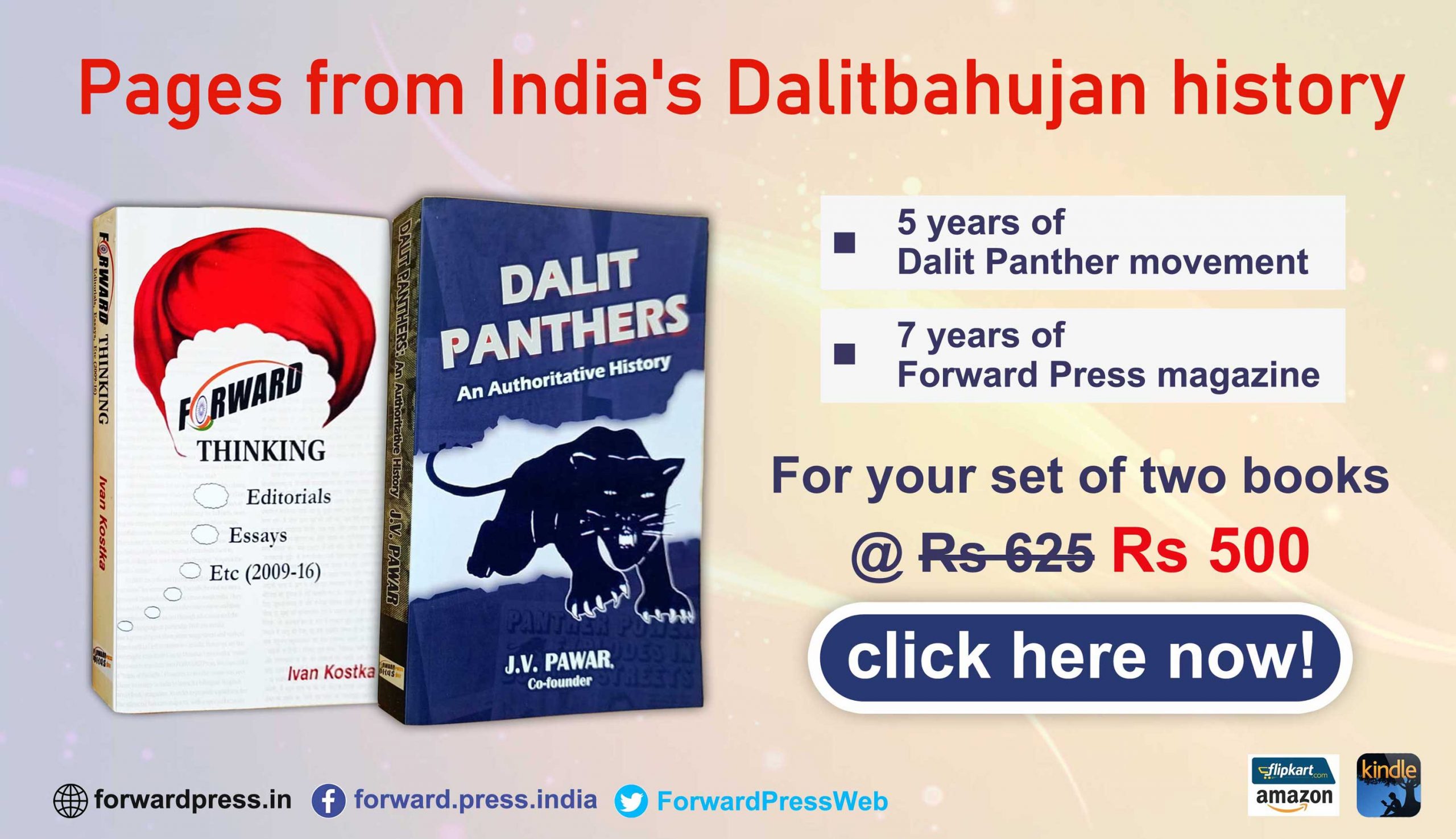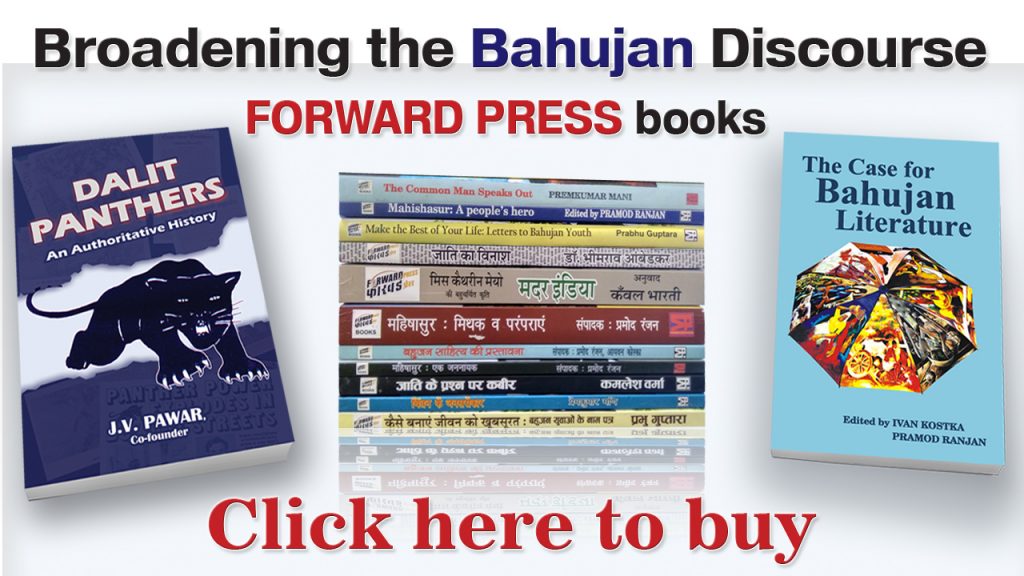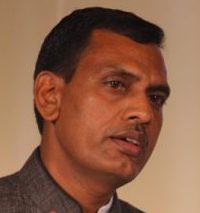The right-wing loudmouths are turning bolder by the day. The right-wing individuals and organizations have been spewing unadulterated venom. Whether at “Chintan Baithaks” (brainstorming sessions) or “Dharma Sansads”, their utterances are making a mockery of the Constitution and of the law of the land. Continuing successes in the electoral arena have boosted the morale of the communal forces to no end. They are now uncontrolled and uncontrollable, challenging the Indian nation state. They are challenging the Indian Constitution. They are out to turn the country into a theocracy.
A two-day Chintan Baithak, organized by Pragya Pravah – the intellectuals’ wing of the Rashtriya Swayamsevak Sangh (RSS) – in Bhopal, Madhya Pradesh, on 16-17 April 2022 only underlined this dangerous trend. Those who attended the event included RSS chief Mohan Bhagwat, Mahesh Chandra Sharma, who is a scholar of Integral Humanism, and former Sangh spokesperson Ram Madhav. What the speakers said at the so-called Chintan Baithak were ample indications of the dangers looming over the future of India.
Addressing the event, Bhagwat said, “The Sangh is the rival of none. It supports the individuals and the organizations working for the rise of religion and nation.” On the face of it, there is nothing dangerous or objectionable in this comment. But it has deep hidden connotations. Bhagwat is, in fact, issuing a threat that only those who work for religion and nation, as defined by it, can hope for its support. Those who differ in their concepts of religion and nation would only not have the Sangh’s support but also be obliterated.
National Security Adviser Ajit Doval recently said that the time has come to wage a battle against civil society. In fact, the Home Ministry launched the battle long ago. Organizations working for human rights, religious freedom and for the rights of the oppressed sections of society have been reined in. Their Foreign Contribution Regulation Act (FCRA) registrations have either been cancelled or not been renewed. The secular civil society is being systematically and gradually throttled.

What Mahesh Chandra Sharma, chairperson of Ekatma Manav Darshan Anusandhan Evam Vikas Prathisthan, said at the conclave is even more dangerous. His roundabout manner of speech and his sweet-sounding words were designed to obfuscate and confuse. Sharma said, “Our nationalism is not geographical but geo-cultural.” Now, this concept has all the elements of Brahmanism and imperialism. Sangh’s “Cultural Nationalism” is in fact, Hindu Nationalism, which, in turn, means Brahmanical Nationalism. By describing India as a geo-cultural nation rather than a nation defined by its geographical boundaries, the Sangh and its auxiliary organizations are indulging in a well-thought-out word play. Their statements smack of brahmanical imperialism and cultural domination.
Sharma went on to say, “If the world’s political system is to be humanized, it will first have to be Hinduized.” To argue that Hinduization is an essential prerequisite for building a humanistic world is a laughable proposition. In fact, it is the Hindus the world over who need to be humanized, for they are in the grip of an inhuman system based on untouchability, discrimination and exploitation. And on top of that, they believe that they are the best! Thus, it is not the Hinduization of the world but the humanization of Hindus that would pave the way for the making of a humanistic world.
In his speech, Sharma also called for changes in the Indian Constitution, though not in so many words. He said, “The Constitution should neither be praised nor condemned, but refined.” Given the growing Bahujan consciousness, the Sangh cannot dare condemn the Constitution. But by saying that it need not be praised either, it is eminently conveying what it thinks of it. It wants not only to amend the Constitution but to rewrite it.
Sharma, a scholar of integral humanism, and others of his ilk don’t stop here. They believe that the system prevailing in the secular, democratic India is “un-Indian”. Golwalkar believed this and so do most RSS intellectuals today. They say that the very concept of democracy is Western and lacks Indian elements. That is the reason Sharma said, “We should try to establish a ‘Dharma Rajya’ while Indianizing democracy.”
One should not harbour any doubts that Indianization of democracy, in fact, means its Hinduization, with the ultimate objective of replacing secular Indian state with a theocracy. The Sangh wants to change the basic character of the Constitution and establish a Brahmin-ruled nation under the guise of a Hindu Rashtra. Thanks to the Sangh, the Dalits, OBCs and Adivasis are already holding the flag of Hinduism aloft and the Muslims have been identified as the enemies of the nation. In the name of Indianization, the Sangh is out to brahmanize India. The nation of its dreams would be brahmanical, with the Manusmriti as its constitution. The danger is too grave to ignore any longer.
(Translation: Amrish Herdenia; copy-editing: Anil)
Forward Press also publishes books on Bahujan issues. Forward Press Books sheds light on the widespread problems as well as the finer aspects of Bahujan (Dalit, OBC, Adivasi, Nomadic, Pasmanda) society, culture, literature and politics. Contact us for a list of FP Books’ titles and to order. Mobile: +917827427311, Email: info@forwardmagazine.in)
The titles from Forward Press Books are also available on Kindle and these e-books cost less than their print versions. Browse and buy:
The Case for Bahujan Literature
Dalit Panthers: An Authoritative History







